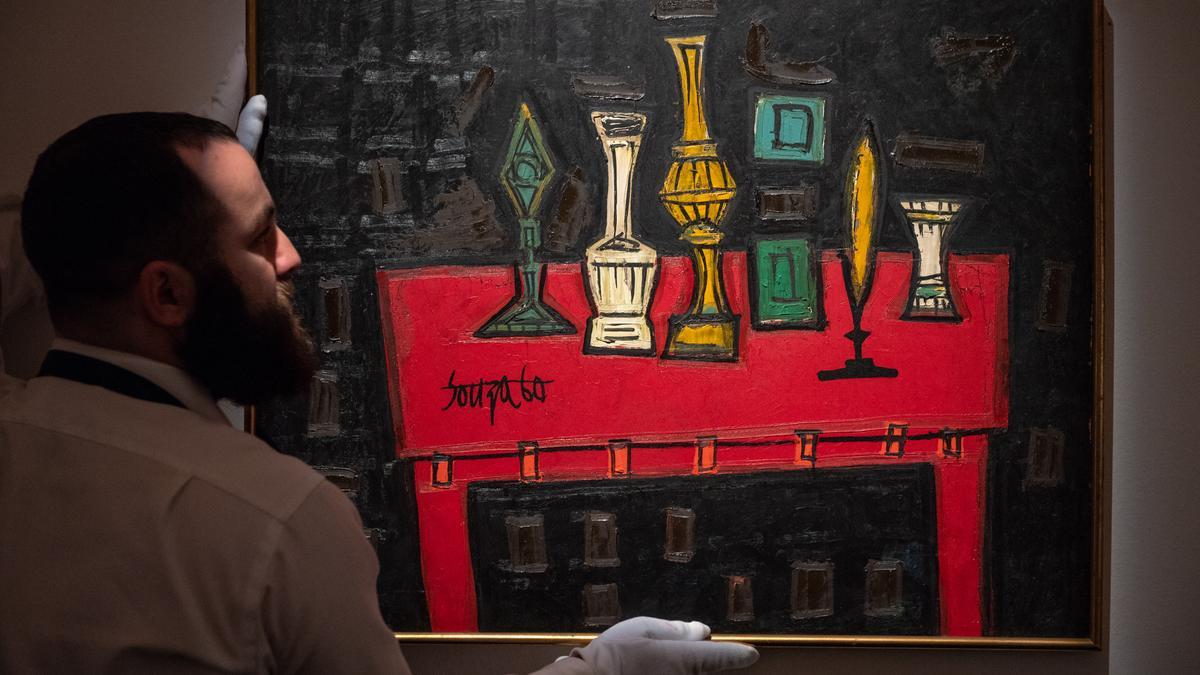
In a critical development concerning the intersection of art and legal interpretation, the Bombay High Court on Friday, October 25, 2024, issued a decisive order mandating the Customs Department to release artworks by acclaimed Indian artists Francis Newton Souza and Akbar Padamsee. The artworks were seized in 2023 amidst controversy and allegations of obscenity, a decision that has now been overturned by the court.
The Division Bench, comprising Justices M.S. Sonak and Jitendra Jain, delivered a powerful verdict quashing the previous order dated July 1, 2024, from the Assistant Commissioner of the Mumbai Customs Commissionerate. This order had resulted in the confiscation of the artworks. The bench described the order as “perverse and unreasonable,” critiquing its interpretation of obscenity and emphasizing the nuanced distinction between sex and obscenity. “Sex and obscenity are not always synonymous. Obscene materials are those which deal with sex in a manner appealing to prurient interest. Such an order is unsustainable and must go,” the court declared.
In a revealing critique of the decision made by the Customs Department, the court highlighted the limited perspective that led to the artworks being labeled as obscene. It noted that the decision was poorly founded, resting primarily on the nudity presented in the artworks and their occasional depiction of sexual intercourse. “Not every nude painting or artwork depicting sexual poses can be deemed obscene. While appreciation of such artworks varies by individual, censoring or prohibiting them based on personal biases of a public official is unacceptable,” the court observed.
The High Court emphasized the legal expectation that public officials must operate within the law’s boundaries, not arbitrarily or based on personal ideologies. “Officials are bound by the rule of law to exercise their powers within legal limits,” stated the order.
Drawing from historical legal references, the Bench referred to a landmark judgement by the Supreme Court over six decades ago. The old ruling underscored that the artistic creations of renowned figures like Michelangelo don’t require censorship or alteration for public viewing in India.
. Despite this, in 2024, the customs authorities prohibited the import, and ordered the confiscation and potential destruction, of seven artworks by celebrated artists Souza and Padamsee, branding them as obscene purely based on subjective interpretation.
Critically, the Bench reprimanded the Customs department, emphasizing the lack of expert consultation in the decision-making process. The Customs official failed to consider alternative viewpoints or expert testimony provided by the petitioner, B.K. Polimex India Pvt Ltd, owned by art collector Mustafa Karachiwala. “The Assistant Commissioner’s approach can be best described as Ipse Dixit—declaring anything with nudity to be inherently obscene without substantive reasoning,” noted the court.
This order builds upon an interim decision made on October 21, 2024, where the High Court prevented the destruction of these valuable artworks until a conclusive decision was reached. The recent ruling not only mandates the release of the artworks within two weeks but also underscores the ongoing dialogue about artistic expression and the subjective nature of obscenity.
The legal dispute arose from a challenge to the lawfulness of the Customs Department’s decision, which had categorized the artworks as obscene and had imposed a financial penalty of ₹50,000 on Karachiwala’s firm. Advocates Shreyas Shrivastava and Shraddha Swarup contended on behalf of the petitioner that the seizure was arbitrary, illegal, and in blatant violation of constitutional rights granting freedom of expression.
The origin of the controversy dates back to April 2023, when Mumbai Customs seized a consignment of seven artworks. The collection included a set of four erotic drawings by Souza, prominently featuring a piece titled ‘Lovers’. The remaining works were Padamsee’s creations, a drawing titled ‘Nude’ and two other photographic artworks. These treasures were acquired by Mr. Karachiwala in two separate London auctions but were detained upon reaching Mumbai.
This judicial decision marks a significant moment in the ongoing debate over the definition and limits of obscenity, especially in art. It reinforces India’s commitment to upholding expressions that may challenge conventional boundaries but are recognized globally for their artistic merit.












